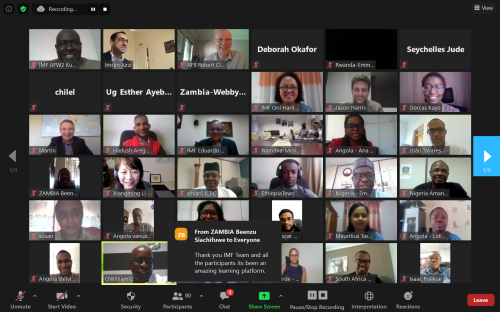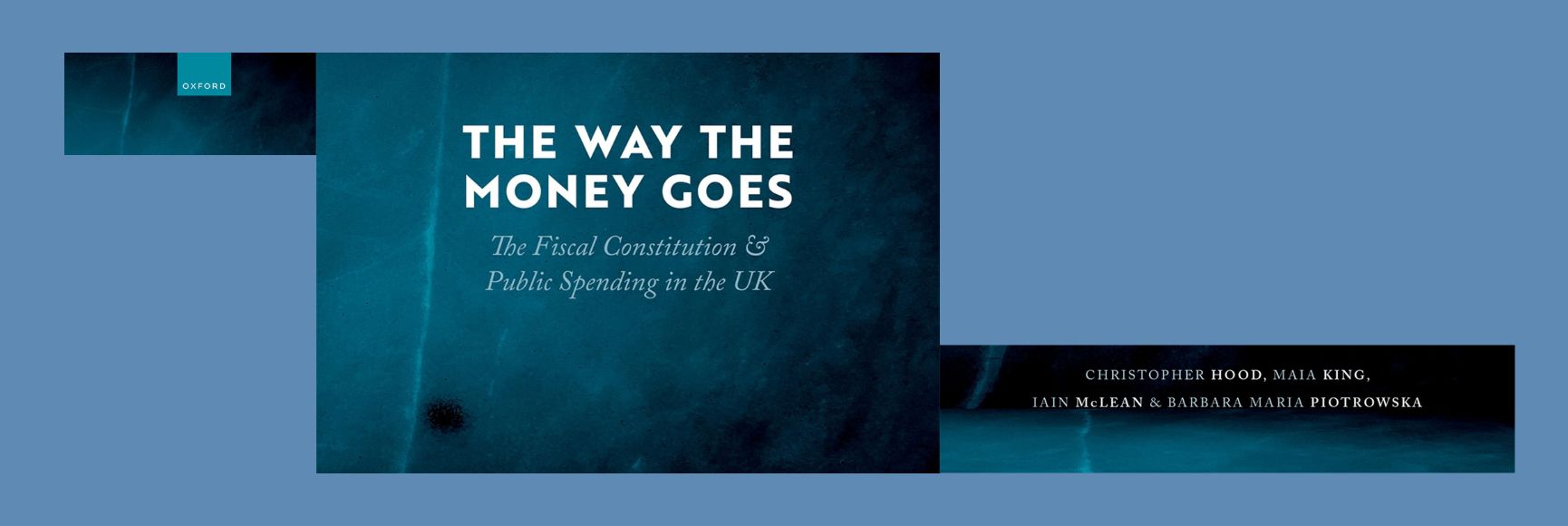
Posted by Robert Clifton, Kubai Khasiani and Imran Aziz[1]
Public Investment Management (PIM) Units have been established across the Sub-Saharan Africa (SSA) region in recent years. These units are usually located in a country’s Ministry of Finance or the Ministry of Planning or Economic Development. Their purpose is to strengthen the appraisal, selection and implementation of infrastructure projects that many countries are (or will be) using to boost the economic recovery from the COVID-19 pandemic. A recent week-long online workshop, organized by three of the IMF’s Regional Technical Assistance Centers in Africa, brought together 21 countries and more than 80 participants from francophone, lusophone, and anglophone countries to discuss opportunities, challenges and experiences.[2]
The workshop covered four important themes:
Theme 1 explored the changing nature of infrastructure provision and financing in the region such as external financing, the use of SOEs and PPPs, and the management of fiscal risks. Sierra Leone and Ghana provided insights into how their reforms have helped to bring together different stakeholders through strengthening the legal framework and organizational structures to better coordinate PIM.
Theme 2 assessed the role of public investment in the fiscal response to COVID-19, highlighting analysis and advice published in the IMF’s October 2020 Fiscal Monitor. Examples were provided of how Uganda has developed a framework to reprioritize the capital budget to accommodate COVID emergency spending, and how reform efforts in South Africa are supporting an investment led recovery.
Theme 3 analyzed the linkages (or lack of linkages) between project appraisal, selection and the budget process. Why have the results of Public Investment Management Assessments (PIMAs) for many SSA countries in these areas have been disappointing? Participants emphasized the inadequate flow of information between planning and finance ministries due to the misalignment of project preparation and budget cycles. A consistent quality management framework to prioritize spending on infrastructure is also lacking. Lesotho, Madagascar and Liberia shared the measures they have been taking to strengthen these linkages.
Theme 4 explored the key role played by PIM units and IT systems to develop, review and coordinate information flows between different stakeholders. The units can also exercise an effective challenge function in the project appraisal and selection processes. Mauritius and Uganda shared the work they have been doing to develop a PIM manual and project databank.
On the last day of the workshop each country presented on how these themes could be converted into tangible reform measures. What are the key gaps in existing PIM governance frameworks and countries’ most pressing needs in the short and medium term? The following priorities were identified:
- Strengthen PIM processes and integrate them in the legal framework.
- Increase transparency in the project appraisal and selection stage.
- Develop practical tools and IT systems for managing public investment, such as project concept and pre-screening templates, and instituting independent reviews to appraise large projects.
- Strengthen the core functions and capacity of PIM units, strengthen coordination between these units and key stakeholders such as finance and planning departments, and continue to develop the units’ skills to undertake or evaluate project appraisals.
An internal peer learning survey was conducted during the workshop. Participants showed a strong interest in establishing a community of regional peer learning to support their countries’ reform efforts. In 2019, FAD established a European Regional Network of infrastructure practitioners that has been successful in maintaining an engagement between infrastructure practitioners across countries – particularly those inside the Ministry of Finance. The lessons learned from this European experience and the survey are important inputs to exploring the possibility of a similar initiative in Africa.
This workshop dovetails nicely with other important initiatives by the IMF’s Fiscal Affairs Department (FAD). FAD will soon launch a revamped Infrastructure Governance Portal. This Portal will bring together in one website the IMFs advice on improving the governance of public investment, information on best practices, and country level PIMA reports that have been published. FAD’s recently published book on infrastructure governance (Well Spent: How Strong Infrastructure Governance Can End Waste in Public Investment) will also feature on the site.
The workshop created the opportunity for collaboration among the participating countries to identify areas of improvements in their PIM systems. The Regional Technical Assistance Centers in SSA will continue to support such initiatives and provide targeted assistance for individual countries.
[1] PFM Advisors in the IMF’s Regional Technical Assistance Centers in Africa – AFRITAC South, AFRITAC West 2, and AFRITAC East respectively.
[2] The workshop was held on November 2-6, 2020. The participating countries were South Africa, Uganda, The Gambia, Lesotho, Nigeria, Botswana, Malawi, Ethiopia, Zambia, Sierra Leone, Kenya, Mauritius, Namibia, Liberia, Angola, Zimbabwe, Cabo Verde and Tanzania (Zanzibar), Ghana, Rwanda, Seychelles, and Madagascar
Note: The posts on the IMF PFM Blog should not be reported as representing the views of the IMF. The views expressed are those of the authors and do not necessarily represent those of the IMF or IMF policy.







